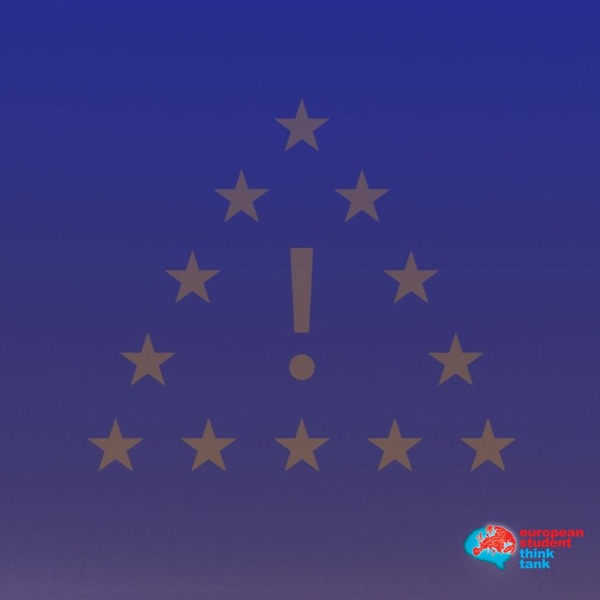
Written by: Ismael Loulidi Fernández
The world is in the midst of the emergence of technologies bound to be game changers, perhaps even ushering a new phase of globalisation (Görlich et al, 2020). The consequences of current technological innovation will no doubt implicate future changes, and they will most certainly be perceived in international relations. Despite being nothing new, digital technologies and their development will become the means to a new era, constituting both an opportunity and a risk to citizens and governments worldwide.
Values impregnate societies. The scope of new technological advancements is such that their uses can impact on values unquestioned until now. In this respect, there does not seem to be an international consensus that will collectively shape the use of technology. The hegemony of the liberal order around the world is over. The shift towards a multipolar international order has become, as after WWII, a fierce economic and geostrategic competition (not military, at least by Cold War standards) amongst powers, and to a further extent, a clash between values and worldviews.
Governments across the world seem to be deep within a process that will determine how to mould the use of technologies. It took centuries to legally organise the maritime and territorial spheres across the world, and the digital dimension will require similar steps, but much faster. A multipolar world order inevitably will mean different approaches to innovation that ideally would require an international consensus.
In this sense, the European Commission is determined to make this “Europe’s digital decade” (Von der Leyen, 2020). Digitalisation is key for many aspects of the EU’s future. It is no surprise that digital investment is expected to increase significantly in the Multiannual Financial Framework for 2021-2027 (although it still remains insufficient). The Declaration about the EU’s Digital Future, The White Paper on Artificial Intelligence, and The European Strategy for Data, released in February 2020, are the pillars of a long-term strategy in which the EU will attempt to become a leader in data innovation.
According to the principle of subsidiarity, one of the EU’s basic functioning principles, the Commission’s role on technology development and regulation can only be one of coordination. Member states have sovereignty over their digital competences, so it is up to them to comply with EU policies. However, given the importance of adapting to new technological innovations and applications, it is not expected to find member states that diverge from the EU position.
Two debates currently in the limelight are the EU’s data strategy and digital industry. This article will briefly summarise and examine each of the key aspects concerning both subjects while simultaneously giving an insight on the current geopolitics.
Data will be the key asset in the 21st century and, therefore, it comes as no surprise that the EU wants to lead the global race for everything data related. Divergence in the process of digitalisation has become a reality. Actors across the international stage diverge in approaches, responses, and protocols (Jorge-Ricart, 2020), and data is no exception. Among the three main streams regarding data use currently available, the EU-backed proposal is based on privacy protection and a responsible use of data, in contrast to China’s centralized control and the laissez-faire approach of the US based on private-public partnerships. As a result of multi-polarisation and strategic use of technology, data has become part and parcel of foreign policy and, therefore, an extension of sovereignty.
The EU is known as a regulator (Bradford, 2020) and is currently building up a framework that can encompass privacy with data flow. Data is valuable when shared, so the flow of data is essential for the data economy. It is paramount to encourage Small and Medium Enterprises (SMEs), public services, cities, and other actors to use more data, to make it available and to share it. In order to do that, trust is needed. A safe legal framework in which institutions and companies can operate without risks and in which users feel that they have control of their own data is the aim of EU regulation.
The current landmark of EU regulatory power concerning new technologies is the General Data Protection Regulation (GDPR), the strictest and most far-reaching data protection regulation ever passed, aiming to harmonize data privacy laws across Europe. One of the key aspects of the legislation is to grant users more control of their own data. For example, users have the right to portability, the ability to transfer their personal data between service providers; and the right to erase, the possibility of directing a controller to erase their data. On the other hand, companies are forced to appoint data protection officers and heavy penalties can be imposed on non-complying businesses, reaching up to 4% of annual revenues (GDPR, art. 83). However, enforcing the GDPR has proven to be a tough task, especially given that it falls upon member states. Thus, those states that do not want to comply with the GDPR, such as Ireland, simply do not enforce it. It is in this respect where the EU will have to act if it is to behave as a sole actor.
During a conference on data governance organised by the Brussels-based think tank Bruegel, the EU Commissioner for the Internal Market, Thierry Breton, announced the Commission’s plan which is expected to be developed in the following months. On a broader scope, the spectrum of current and future EU data regulation will be based on the following four pillars (Bruegel, 2020):
- Data Governance Act, which, in Breton’s words, will facilitate data sharing among sectors and member states and create the conditions to use sensitive public data, thus moving away from the current practices of the big tech platforms.
- Digital Services Act and The Digital Market Act, which establish regulations of platforms and full responsibility on the content they spread
- Data Act (expected in 2021) which will aim at increasing fairness in the data economy by clarifying data usage rights for businesses and individuals.
- An intellectual rights framework that is yet to be developed.
The EU’s main ambition is to create a common market for data which will ultimately mean the exchange of data among members (sharing) and the centralisation of resources (pooling). There are many types of data: health data, personal data, location data, IP addresses and cookie data. A framework that regulates data use should try to encompass all of these. Furthermore, it should establish what treatment is given to businesses and users that work with each type of data, in order for standards of transparency, accountability, and fair competition to prevail.
However optimistic this may be, the EU needs to continue to work on its current action on data governance and try to overcome challenges that are also affecting other aspects of EU policy, such as fragmentation among member states. The EU should also not forget its responsibility towards a rules-based international order, which eventually implies the convergence of human rights with technological development and regulation. Internationally, the path of integrating the technological and cyber perspective into the framework of protection of human rights is still at an early stage (Jorge-Ricart, 2020). In this respect the EU should advance through the different implications technology and AI have on human rights, given that they strike the very heart of European democracy.
The EU excels in data regulation but lacks a solid digital industrial policy. All major tech companies and online platforms are either Chinese or American, and all verge on being monopolies (Ortega, 2018). The entanglement between the US and China in a technological war has left the EU in the lurch. Some speak of creating European tech companies to compete with their Sino American counterparts. The GAIA-X project has the ambition to become the first step towards a future data ecosystem in Europe, with the aim of reducing dependency on US cloud companies. However, picking a few companies, giving them funds and protecting them from foreign competition is not the answer. One of the current problems of the EU is not the inability or the lack of talent to create companies. Instead, it is that once they have started to thrive, they would move to Silicon Valley or Shenzhen. Regulation is key for preventing harmful abuses, but it is important not to jeopardise the efficiency of companies. Funding should be spent more broadly according to a design that values competition and selection to ensure a level playing field. Europe missed the train of the big tech companies that emerged in the 90s (Ortega, 2018). It is now up to current leaders to seize opportunities offered by data and 5G. As a matter of fact, it is leaders themselves who, finding Europe in the midst of an upscaling technological competition, have started to call for more European sovereignty and the need for a “Geopolitical Europe”. The idea that European countries and institutions ought to be based on common political and strategic goals has long been in the minds of politicians, bureaucrats, and EU experts.
Sovereignty is back in the rhetoric of international relations. The term “autonomy” appears from time to time, referring to a country’s lack of dependence upon any other international actor. However, concerning the rise of new technologies and industries, strategic autonomy should be understood as having the means and power to prevent other countries from denying the EU access to components and technologies, not a sort of technological autarky which history has shown to be counter-effective. The EU’s digital industrial strategy will have to be based on the prevention of dependence. It also needs to ensure the access to key technologies to companies, helping them become key leaders in strategic value chains.
While the EU lacks the strength of China and the US in terms of tech companies or digital investment and innovation, it is not completely powerless. The EU is known for its “normative power” (Bradford, 2020). The current European legislation in areas such as trade and competition, as well as in digital rights and privacy, is being imitated around the world and is setting the precedent for a digital rules-based order. In terms of data privacy, given that the General Data Protection Regulation applies not only to European companies but also to those operating with European residents’ data, it has achieved a global reach. The EU has come through a common framework for data privacy which has raised concerns in the US, where there is no federal equivalent. The EU has realised that a European search engine similar to Google is unlikely. Therefore, it has set the aim to become a global leader in data innovation and its applications.
The lack of initiative from other actors and the size of the European market demanded that the EU stood up for regulation. Europe was the cradle of today’s International Law. Although historical conditions were in part responsible for this, it is surprising to see that nowadays it is Europe again trying to establish a framework for international (digital) relations.
BIBLIOGRAPHY
- Bradford, A. (2020). The Brussels Effect: How the EU Rules the World. New York. Oxford University Press.
- Bruegel (2020, November 24). Future of data economy: a conversation with Thierry Breton and Maximilian Schrems. Bruegel event. Brussels. https://www.bruegel.org/events/future-of-data-economy-a-conversation-with-thierry-breton-and-maximilian-schrems/
- Görlich, D; Finck, M; Petropoulos, G; Poitiers, N; Sapir, A. (2020, November 26). Data flows, artificial intelligence, and international trade: impacts and prospects for the values chains of the future. External publication. Bruegel. Retrieved from: https://www.bruegel.org/2020/11/data-flows-artificial-intelligence-and-international-trade-impacts-and-prospects-for-the-value-chains-of-the-future/
- Jorge-Ricart, R. (2020, July 20). Digital rights: a necessary, yet not sufficient framework. Elcano Blog. Real Instituto Elcano. Retrieved from: https://blog.realinstitutoelcano.org/en/digital-rights-a-necessary-yet-not-sufficient-framework/
- Jorge-Ricart, R. (2020, April 27). Digital Truce at times of post-crisis. Elcano Blog. Real Instituto Elcano. Retrieved from: https://blog.realinstitutoelcano.org/en/digital-truce-at-times-of-post-crisis/
- Ortega, A. (2018, May 25). Digital sovereignty. Elcano Blog. Real Instituto Elcano. Retrieved from: https://blog.realinstitutoelcano.org/en/digital-sovereignty/
- Soesanto, S. (2017). Europe’s Digital Power: from Geoeconomics to Cybersecurity. Conference Report. European Council on Foreign Relations. ECFR/207.
- Von der Leyen, Ursula (2020). State of the Union Address, 16 September 2020.

 The ’Ndrangheta’s Infiltration and Threat to European Institutions
The ’Ndrangheta’s Infiltration and Threat to European Institutions  From Paper to Practice: How Grassroots Norms Undermine Gender Rights in Pakistan
From Paper to Practice: How Grassroots Norms Undermine Gender Rights in Pakistan  Exploited Childhoods: The Role of Global Corporations in Perpetuating and Mitigating Child Labour
Exploited Childhoods: The Role of Global Corporations in Perpetuating and Mitigating Child Labour  Human Rights Challenges in Addressing SLAPPs in Media, NGOs and Journalism in the EU
Human Rights Challenges in Addressing SLAPPs in Media, NGOs and Journalism in the EU 


